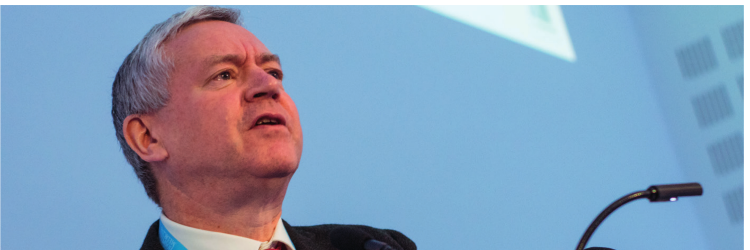
Dementias 2019, the 21st National Dementias conference hosted by MA Healthcare Conferences was successfully held on the 14th and 15th February at Cavendish Conference Centre in London.
More than 150 participants across the country attended the conference, including 21 speakers and a new addition of poster presenters who shared their research, initiatives and experiences in the fields of psychiatry, geriatrics and neurology.
Professor Alistair Burns, National Clinical Director for Dementia and for Mental Health in Older People at NHS England together with Professor John O’Brien, Professor of Old Age Psychiatry at the University of Cambridge opened the conference by highlighting its focus. This was to ‘improve dementia diagnosis and research quality’ and to ‘improve awareness and management of lesser known dementias’. Professor O’Brien noted that ‘to provide an ideal dementia service, we need to include the expertise from geriatricians, neurologists and psychiatrists and indeed non-medical people involved in the care of those with dementia.’
We kicked off the first day with a keynote address on ‘The UK Dementia Research Institute’, delivered by its Associate Director Professor Giovanna Mallucci. This initiative aims at accelerating the discovery of new treatments and better care for people with dementia by focusing research on how dementias develop and progress. Professor John Schott, Professor of Neurology at the Dementia Research Centre at UCL followed by sharing his research on CSF biomarkers. Professor Schott gave insights into the clinical interpretation of CSF biomarkers, how CSF analysis is being implemented into the NHS and emphasised the potential for analysing future biomarkers.
The next talk covered the 2018 NICE dementia guidelines on diagnostic imaging and was held by Professor John O’Brien, a member of the advisory committee to NICE. Later in the morning, Dr Matthew Jones was joined by Dr Jennifer Thompson to deliver an interactive case presentation, inviting the audience to share their thoughts and processes on dementia diagnosis.
The afternoon session began with Dr Greta Rait considering the current state of dementia assessment, recognition and prevention in primary care. This was followed by Alex Ruck-Keene sharing his thoughts on the Deprivation of Liberty Safeguards and the upcoming Mental Capacity Amendment Bill. The next speaker, Professor Dag Aarsland, Chair of Old Age Psychiatry at King’s College in London shared exciting evidence focusing on the treatment of behavioural symptoms in dementia. After, Professor Roy Jones gave a compelling overview of the history of NICE. He explained the challenges of measuring clinical and cost effectiveness for dementia treatments and how NICE is incorporating more clinical experience as well as hard evidence. The day concluded with a lively discussion about where dementia care and treatment might shift in the next 5 years and the importance of a combined approach amongst specialists in dementia diagnosis.
The second day of Dementias 2019 opened with a keynote address titled ‘What can epidemiology can tell us about dementia?’. Professor Carol Brayne, Professor of Immunology at the University of Cambridge presented compelling evidence that our dementia service needs to be tailored to consider the whole life of the patient, including cognitive lifestyle and multi-morbidities. The following session was delivered by Professor Julian Hughes, who balanced the ethical issues of surrogate decision making, sex and euthanasia with his research and rights of people with disabilities. Dr Iracema Leroi then shed light on the importance of recognising and managing hearing loss and visual loss as co-morbidities of dementia. Later in the morning Dr Emma Vardy, Clinical Dementia and Delirium Lead at Salford Royal NHS Foundation Trust gave a fascinating talk on diagnosing and managing delirium. She emphasised that delirium needs a combined approach to treat appropriately and equipped specialists with some tools to implement delirium assessment in their areas.
Dr Liz Simpson launched the afternoon session with a presentation on the importance of palliative care in dementia. She shared research on the of benefits of specialist assessment at memory clinics and called for more end of life support from geriatricians, psychiatrists and neurologists. Professor Linda Clare then delivered a speech titled ‘Psychosocial interventions in dementia’. The next speaker was Professor Louise Robinson who lectured on the role of the GP in post diagnostic care of dementia. Professor Gill Livingston closed the conference with an inspirational presentation from The Lancet Commission. Meta-analyses of global dementia prevalence and lifestyle risk factors were used to remind us of the enormous effect modifying these risks could have on the global burden of dementia.
‘Dementias 2020’ will be held at the Cavendish Conference Centre in London on the 13th and 14th February 2020.